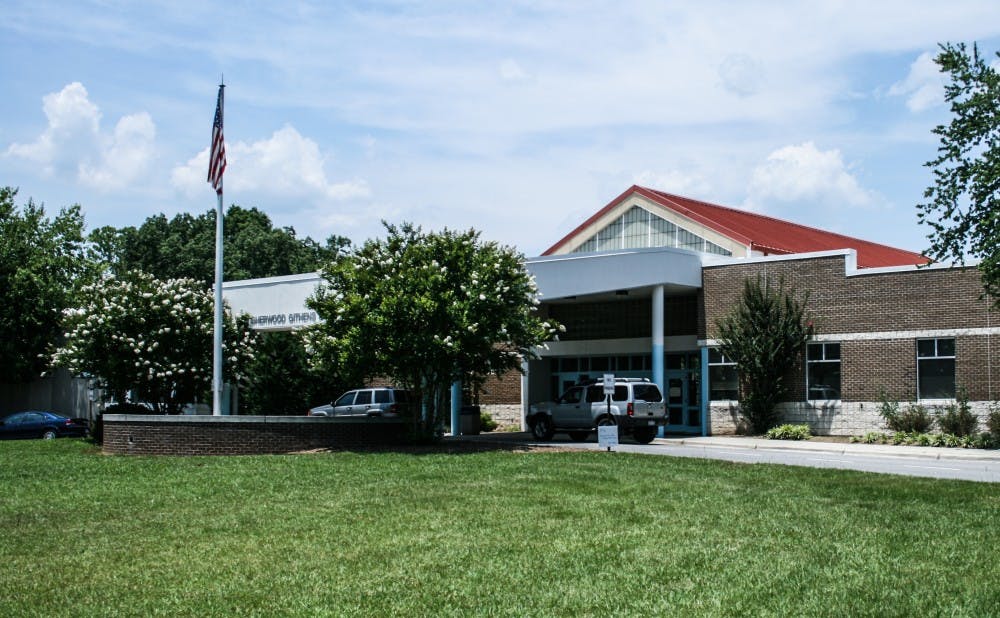Imagine this: Coach K sets his rules for the upcoming game—everyone must be at practice. Every day, on time, no exceptions. One afternoon, all of the team’s starters decided to show up an hour late to practice. The rule says they should be suspended for one full week, which means they will not play against UNC... But the whole team, not to mention K-Ville, is depending on them. What should Coach do?
This dilemma was presented to middle schoolers at Smith Middle School in Chapel Hill last week. A few members of Duke Honor Council visited Smith to teach and talk with sixth graders about honor. We began by presenting these ethical dilemmas.
The middle schoolers moved to one side of the room in support of the players being allowed to play and the other side for the players not being allowed to play.
A student in the back raised his hand and started with “an unrelated question, but do you think Duke is gonna sue Nike?”
More students began sharing their thoughts. They delved into more complexity than I had anticipated.
For instance, one student said that she thinks the “coach should not prevent the players from playing until talking with them because what if their dog had died, and they were at home feeling sad.” Another student argued that she would support the coach preventing the players from playing because in that case, benchwarmers would have a turn on the court.
Overall, middle schoolers seemed to focus on the feelings of the players, as opposed to the logistics of the rule, perhaps due to that middle school emotional lability, but also to give insight into people’s motivations. When talking about the different ethical dilemmas and what terms like honor, moral courage, cheating and plagiarism mean, the students recognized the interconnectivity of these concepts—for example, how cheating leads to dire consequences for the cheater but also affects other students in the classroom. They also exhibited great empathy when, for instance, talking about how it would make a friend feel if they lied to them.
We have much to learn from these middle schoolers. Younger people tend to be more curious than critical of those around them. A middle schooler may welcome an unfamiliar face on a bus more readily than we might. The ability to recognize that at times we will all be the new and unfamiliar person on the bus needing a seat and to respect the dignity in fellow humans is admirable. As Duke students, we can learn to better relate to and interact with people outside of the Duke bubble. We should strive for the middle schoolers’ curiosity. Once we are curious and care enough to learn about those around us, their beliefs and values, we can listen and empathize with them. This empathy is necessary for healthy relationships between students and Duke and Durham.
Safety is not explicitly laid out in the Community Standard. However, the Community Standard does establish trust as a baseline for our behavior, leading to a communal feeling of security and care between students and community members. The Community Standard does not limit our expressions of trust, respect and integrity to within the Duke bubble. Rather, because we are ambassadors of Duke to people outside of its realm, we should uphold the Standard in those situations especially. In Durham, we should act if we see wrong. We should respect Durham community members in the same way we treat ourselves and our fellow Duke students—as we assume the best of our classmates, we should not lay judgments on those outside the Duke bubble.
Duke is not an isolated island floating at sea—Duke community members are interconnected with Durham, and it is our responsibility to engage in the space we inhabit in an honorable way.
Duke Honor Council’s goal is to promote the Duke Community Standard and its core ideals of honesty, fairness, respect and accountability. The basis of The Community Standard is about treating others as you want to be treated and acting if you see something wrong.
Middle schoolers can also teach us something about what is wrong in academic settings. When we talked about academic integrity—defining cheating, plagiarizing, and discussing strategies to do the right thing—the middle school students saw that avoiding cheating and plagiarizing only requires doing your own work. Academic pressures can blind Duke students to these middle schoolers’ common sense. Middle schoolers could remind Duke students that doing one’s own work means without the aid of Adderall or a computer science friend who already completed their code.
At the end of our day at Smith Middle School, we weaved our way through the hallway, hearing shouts and lockers slam. Though they might not have taken organic chemistry or read "War and Peace," we have much to learn from these middle schoolers. They remind us that acting honorably in social settings requires empathy to treat others with human dignity, and in academia, requires honest common sense.
This week's column was written by Margaret Gaw, a Trinity first-year.
Get The Chronicle straight to your inbox
Signup for our weekly newsletter. Cancel at any time.
Kushal Kudakia, President of Duke Honor Council, is a Trinity junior. his column for Duke Honor Council runs on alternate Fridays.

